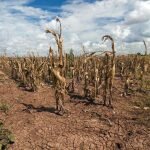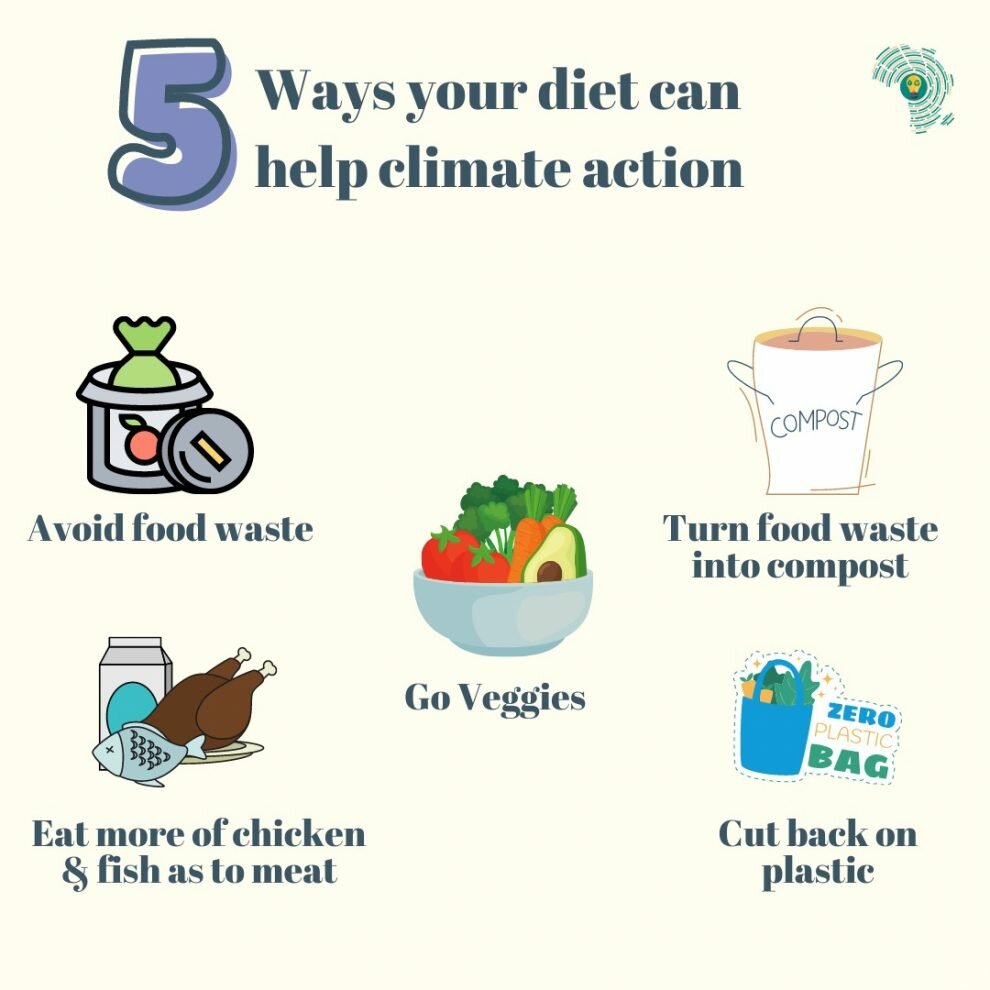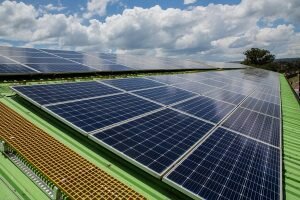Hello, readers. Hope y’all had a great weekend.
Welcome to #SolutionMonday on CleanbuildVoices!
For today’s special, we will talk about food and its impact on climate change. But before we begin, did you know that food production accounts for about 30% of the world’s greenhouse gas emissions? Scientists have also found that we have to make changes on how we eat if we’re to succeed in reducing global warming.
Below is an infograph that captures how global food system impacts the climate.


In our local context, we understand that there is no “one size fits all” approach to reducing the negative effects of food production and consumption on the climate.
Indeed, for millions of people in Africa, getting it right on food and climate change is not just about the carbon footprint of what we have on our plates; it’s about whether there is any food on the plate at all.
Food-wise, you too can contribute to this fight against climate change. Consider these few tips that can help lower your “foodprint”.
- Avoid food waste: You can do this by cooking smaller portions, and if you have leftover food, re-heat it and eat.
- Turn food waste into compost: Rather than trash rotten food, gather it and turn into into compost manure for your garden. If you don’t have a garden, sell it to local farmers or gardeners.
- Go veggies: Rely less on beef for protein. Source your protein and vitamins from tomatoes, lettuces, vegetables fruits, grains and pulses (like beans, peas and lentils).
- Eat less of meat and more of chicken and fish: For older people, instead of consuming loads of meat, eat chicken and/ fish. It’s not only healthy for the planet, it’s healthy for you.
- Cut back on plastic: When shopping for your groceries, refuse plastic packaging. Go with your reusable bag instead.
Watch this space, as we’ll be back for our #SolutionMonday special next week.





![MIT opens Solv[ED] Youth Innovation Challenge for young people ($200,000) Solv[ED] Youth Innovation Challenge - cleanbuild](/wp-content/uploads/2021/09/SolvED-Youth-Innovation-Challenge-150x150.jpg)












![MIT opens Solv[ED] Youth Innovation Challenge for young people ($200,000) Solv[ED] Youth Innovation Challenge - cleanbuild](/wp-content/uploads/2021/09/SolvED-Youth-Innovation-Challenge-74x55.jpg)

